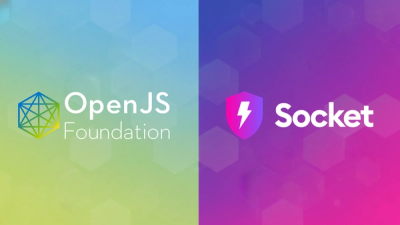
Research
SANDWORM_MODE: Shai-Hulud-Style npm Worm Hijacks CI Workflows and Poisons AI Toolchains
An emerging npm supply chain attack that infects repos, steals CI secrets, and targets developer AI toolchains for further compromise.
aiohug
Advanced tools
|version| |pipeline status| |coverage report|
.. |pipeline status| image:: https://gitlab.com/nonamenix/aiohug/badges/master/pipeline.svg :target: https://gitlab.com/nonamenix/aiohug/commits/master .. |coverage report| image:: https://gitlab.com/nonamenix/aiohug/badges/master/coverage.svg :target: https://gitlab.com/nonamenix/aiohug/commits/master .. |version| image:: https://badge.fury.io/py/aiohug.svg :target: https://badge.fury.io/py/aiohug
Meet the aiohug_.. _Meet the aiohug: https://github.com/nonamenix/notes/blob/master/notes/20190309_aiohug.md
.. code:: python
from aiohttp import web from aiohug import RouteTableDef
routes = RouteTableDef()
@routes.get("/hello/{name}/") async def hello(name: fields.String(), greeting: fields.String() = "Hello"): return {"msg": f"{greeting}, {name}"}
app = web.Application() app.add_routes(routes)
if name == "main": web.run_app(app)
There is no request object in handler signature anymore - only required arguments.
.. code:: python
from aiohttp import web from aiohug import RouteTableDef
routes = RouteTableDef()
class PayloadSchema(Schema): count = fields.Int()
@routes.get("/") async def with_body(body: PayloadSchema()): return body
app = create_app() app.add_routes(routes)
client = await test_client(app) resp = await client.get("/", json={"count": "5", "another": 7})
assert await resp.json() == {"count": 5}
.. code:: python
@routes.post("/ping/") async def ping(): return 201, "pong"
Use aiohug_swagger_ package.
.. _aiohug_swagger: https://github.com/nonamenix/aiohug_swagger
Because of the way aiohttp routing works all decorators to resource handlers
must be applied BEFORE aiohug's routing decorator, i.e.
.. code:: python
def some_decorator(func):
@wraps(func)
def wrapper(request, *args, **kwargs):
# Some logic for decorator
return func(*args, **kwargs)
return wrapper
@routes.get("/ping/")
@some_decorator
async def hello():
return "pong"
Moreover, make sure to decorate wrapper functions with wraps decorator from functools module
aiohug won't be able to access original handler's arguments and annotations.It's just hug_ API implementation for aiohttp
.. _hug: https://github.com/timothycrosley/hug
FAQs
aiohug
We found that aiohug demonstrated a healthy version release cadence and project activity because the last version was released less than a year ago. It has 2 open source maintainers collaborating on the project.
Did you know?

Socket for GitHub automatically highlights issues in each pull request and monitors the health of all your open source dependencies. Discover the contents of your packages and block harmful activity before you install or update your dependencies.

Research
An emerging npm supply chain attack that infects repos, steals CI secrets, and targets developer AI toolchains for further compromise.

Company News
Socket is proud to join the OpenJS Foundation as a Silver Member, deepening our commitment to the long-term health and security of the JavaScript ecosystem.

Security News
npm now links to Socket's security analysis on every package page. Here's what you'll find when you click through.